State-owned enterprises: The pillars of the national economy
According to data from the Ministry of Finance , State-owned corporations and groups currently ensure about 87% of electricity, 50% of retail gasoline, 100% of dry gas, 70% of liquefied gas, 70% of fertilizer, 45% of mobile subscribers, 41% of fixed-line broadband, 49% of domestic air passenger transport, management of 21/22 civil airports nationwide, 16% of maritime cargo, 100% of railway traffic operations and transport... It can be said that the role of State-owned enterprises is particularly important, reflected in many aspects.
Firstly, although the number of state- owned enterprises only accounts for nearly 0.4% of the number of operating enterprises, state-owned enterprises still hold many important resources of the economy, accounting for about 25.78% of total production and business capital and 23.4% of the value of fixed assets and long-term financial investments of operating enterprises with production and business results.
Second, state-owned enterprises play a major role in ensuring national energy security. According to the Electricity Regulatory Authority ( Ministry of Industry and Trade ) on the Vietnamese electricity generation market, power plants belonging to state-owned economic groups (Vietnam Electricity Group - EVN, Vietnam National Oil and Gas Group - Petrovietnam, Vietnam National Coal - Mineral Industries Group - TKV) account for about 87% of the electricity source structure.
Third, state-owned enterprises play a major role in the production and supply of public products and services. Many economic groups and state-owned corporations directly participate in serving national security and defense, implementing social security policies, combining economic development with ensuring national defense, security and sovereignty. State-owned enterprises also play an important role in building and developing the infrastructure system necessary for socio-economic development, first of all, transport infrastructure, agriculture, rural areas, energy, and telecommunications. Many economic groups and state-owned corporations must carry out political and social tasks, serving economic regulation policies, stabilizing the macro economy, and stabilizing prices.
In addition, SOEs play a very important role in the practice of economic and social life. That is, creating jobs and income for workers, mobilizing capital, increasing the competitive environment, increasing revenue for the state budget, contributing to promoting economic integration. SOEs hold a pioneering position in applying modern scientific and technological advances, advanced management levels, increasing labor productivity and leading in quality and economic efficiency.
In the context of the Fourth Industrial Revolution, SOEs also play an important role in leading, motivating, and promoting the development of other economic sectors, supporting the improvement of the competitiveness of enterprises, thereby promoting the linkage of value-added chains towards industrialization and modernization of the country.
As the core force of the state economy, the effective development of state-owned enterprises will directly increase the strength of the state economy, contributing to affirming the leading role of the state economy in the socialist-oriented market economy and creating a solid foundation for an independent and autonomous economy in the process of increasingly deep and wide international integration.
Dr. Nguyen Minh Phong, former Head of Economic Research Department, Hanoi Institute for Socio-Economic Development Research.
According to Dr. Nguyen Minh Phong , former Head of Economic Research Department, Hanoi Institute for Socio-Economic Development Research, from the past to the present, state-owned enterprises have played an extremely important role in the national economy.
After independence and the country was reunited, state-owned enterprises (SOEs) became the core force in building and rebuilding the country. According to data from the Ministry of Planning and Investment, in the 1980s, SOEs accounted for 70% of Vietnam's total industrial output and played a leading role in the subsidized economy. Large enterprises such as the Vietnam National Coal and Mineral Industries Group (TKV), the Vietnam Oil and Gas Group (now Petrovietnam), and the Vietnam Electricity Group (EVN) ensured the supply of energy and essential resources, supporting the country's industrialization process.
During this period, under the centralized economic model, SOEs were assigned the main task of producing essential goods, distributing and regulating domestic resources. They contributed not only to production but also to ensuring the implementation of social goals such as providing jobs and ensuring welfare for the people.
When Vietnam began its reform process in 1986, SOEs still played a dominant role, but they began to change to adapt to the market economy. During this period, many SOEs transformed their operating mechanism from a subsidized to a market mechanism, aiming to improve production and management efficiency. For example, Vietnam Airlines Corporation (Vietnam Airlines) transformed from a public utility enterprise to a competitive business model and became an important national airline in the region.
According to the Resolution of the 6th Central Conference of the 12th tenure, SOEs are identified as an important material force, a tool for the State to regulate the economy and stabilize the macro-economy. The role of SOEs in stabilizing the macro-economy is most evident in periods of economic crisis. During the COVID-19 pandemic, SOEs have maintained production and provided essential services, especially energy, telecommunications, and infrastructure.
For example, Vietnam Electricity Group (EVN) has continuously provided electricity for production and daily activities in the context that many private enterprises have had to cut production scale.
For example, Viettel, a state-owned defense telecommunications group, has not only developed into one of the leading telecommunications companies in the region, but also invested heavily in research and development (R&D), contributing to the development of 5G technology in Vietnam. This not only helps Vietnam compete internationally but also promotes the development of domestic technology. In addition, SOEs also contribute significantly to the development of renewable energy. Vietnam Electricity (EVN) has invested billions of USD in renewable energy projects such as solar and wind power, contributing to Vietnam's sustainable development and emission reduction goals...
Referring to this issue, Dr. Dinh Trong Thinh, an economic expert, emphasized that one of the highlights of SOEs is their active participation in foundational and high-tech industries, which require large capital and high risks that private enterprises often cannot afford to participate in. In addition, SOEs play a leading role in areas with great influence, such as renewable energy and telecommunications.
It can be seen that from the past to the present and the future, state-owned enterprises always play a particularly important role in the Vietnamese economy. Despite facing many challenges, state-owned enterprises are still the pillars of macroeconomic stability, ensuring national security, and promoting technological development...
Minh Khang
Comment
Source: https://www.pvn.vn/chuyen-muc/tap-doan/tin/9021eba0-76da-46b8-a467-ffb39064a29e


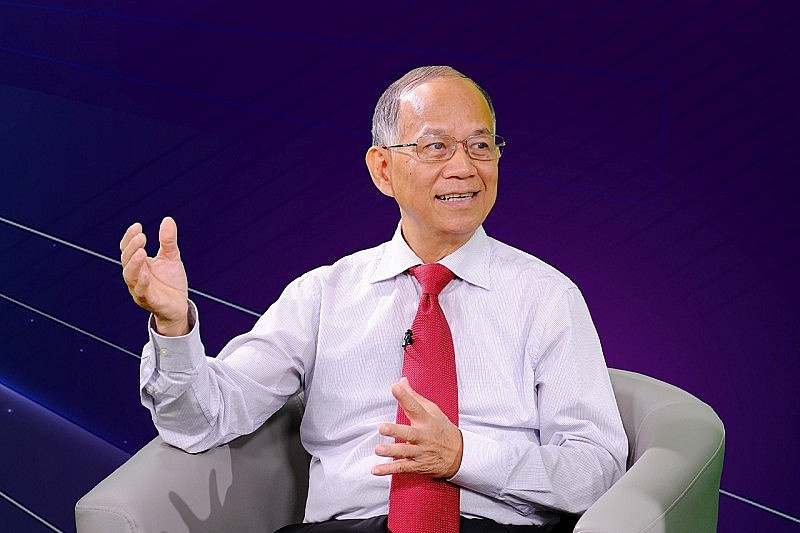
![[Photo] Enjoy the Liuyang Fireworks Festival in Hunan, China](https://vphoto.vietnam.vn/thumb/1200x675/vietnam/resource/IMAGE/2025/10/26/1761463428882_ndo_br_02-1-my-1-jpg.webp)
![[Photo] Nhan Dan Newspaper displays and solicits comments on the Draft Documents of the 14th National Party Congress](https://vphoto.vietnam.vn/thumb/1200x675/vietnam/resource/IMAGE/2025/10/26/1761470328996_ndo_br_bao-long-171-8916-jpg.webp)
![[Photo] General Secretary To Lam received the delegation attending the international conference on Vietnam studies](https://vphoto.vietnam.vn/thumb/1200x675/vietnam/resource/IMAGE/2025/10/26/1761456527874_a1-bnd-5260-7947-jpg.webp)
![[Photo] Prime Minister Pham Minh Chinh attends the opening of the 47th ASEAN Summit](https://vphoto.vietnam.vn/thumb/1200x675/vietnam/resource/IMAGE/2025/10/26/1761452925332_c2a-jpg.webp)


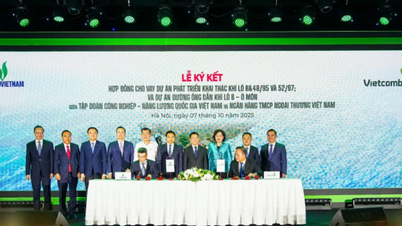



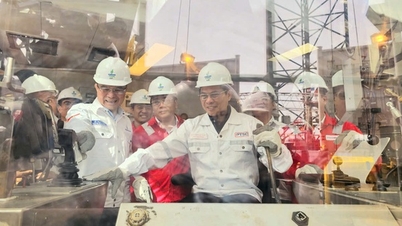

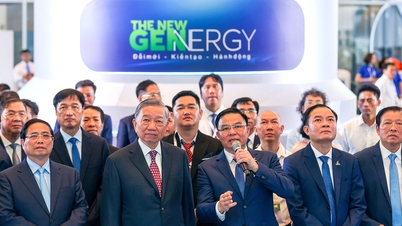







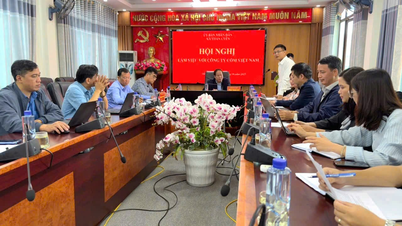



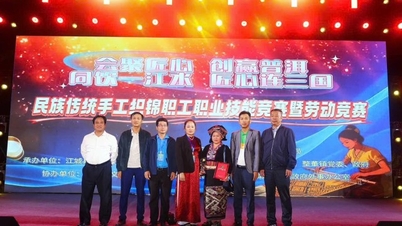







































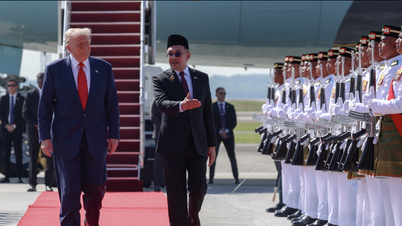

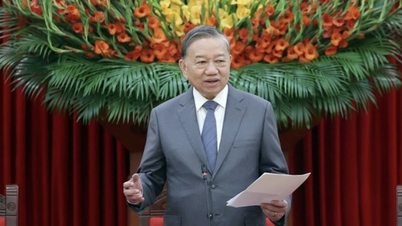

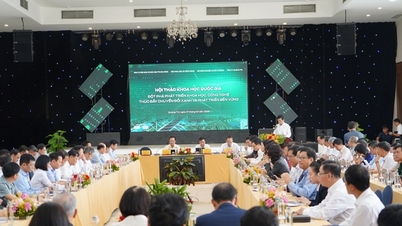

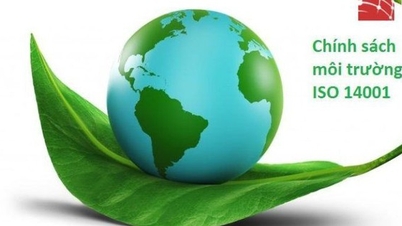

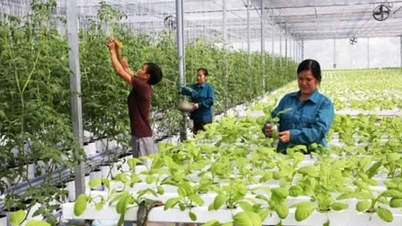

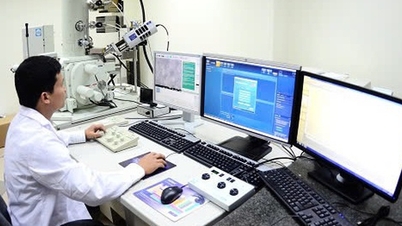
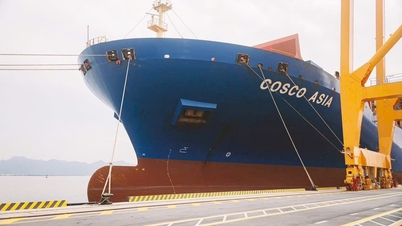





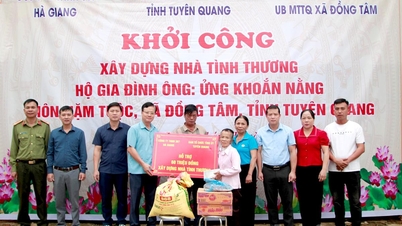














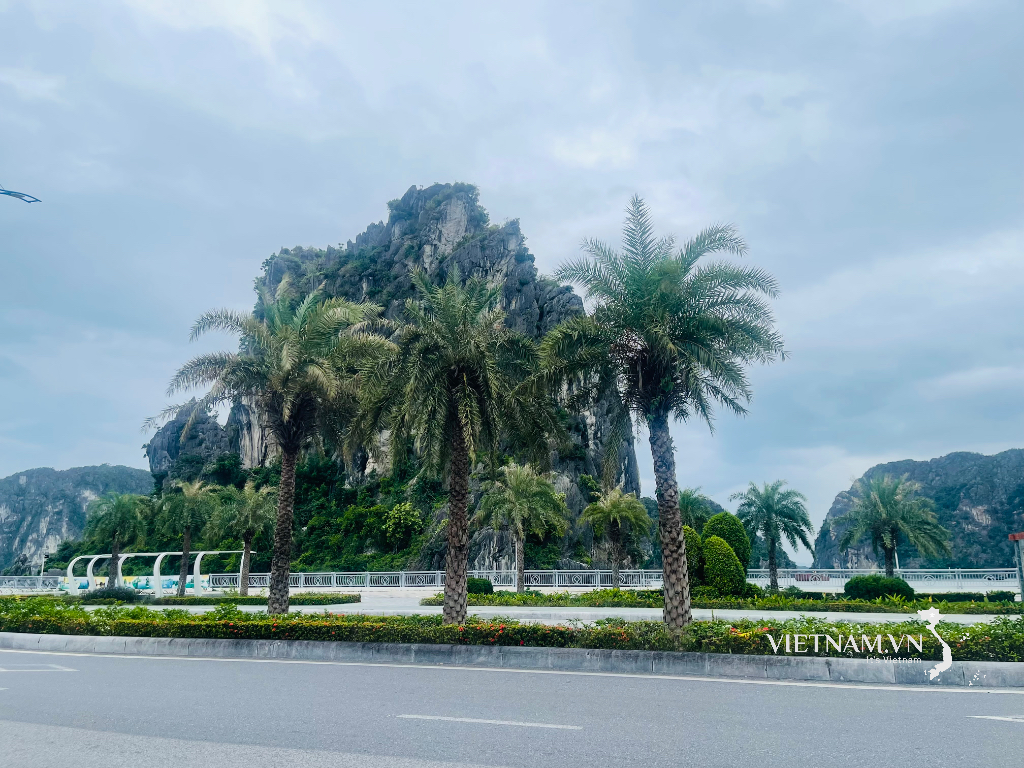


Comment (0)